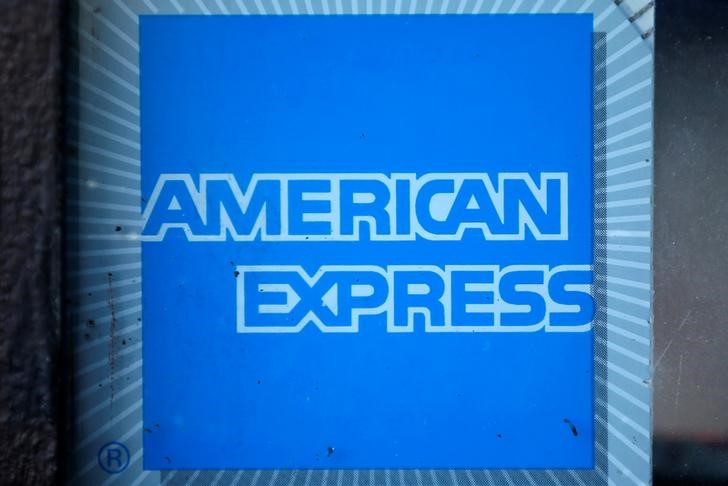© Reuters.
Warren Buffett’s Berkshire Hathaway (NYSE:) continues to hold a significant stake in American Express (NYSE:), owning more than 151 million shares, making up 6.6% of its portfolio, as of Wednesday. This investment has been maintained since 1991, highlighting the long-term confidence placed in the financial services company’s competitive advantage, robust management, and value proposition.
American Express, distinguished by its unique closed-loop network, earns revenue from both fees and loan interests—a model that sets it apart from competitors such as Visa (NYSE:), Mastercard (NYSE:), and Discover Financial. This model has proven resilient across various market cycles, including the current one characterized by negative sentiment in the banking sector and a 19% plunge in the .
Despite these challenging conditions, American Express reported a record $15.1 billion revenue—a 12% year-on-year growth—along with an increase in earnings per share to $2.89. The company also reported $426 billion in network spending. Key growth drivers include its status as a preferred method for travel spending, its appeal to affluent consumers, and a notable 21% spending increase by millennials and Gen Z, as noted by Chairman and CEO Stephen Squeri.
The company’s current Price-to-Earnings (P/E) ratio stands at 15, while its Price/Earnings-to-Growth (PEG) ratio is at 0.93. These figures indicate potential undervaluation relative to the company’s growth potential. Analysts predict a 20% price target increase for AXP over the next year.
The success of American Express can be attributed to a strategic focus on wealthier clientele who are less vulnerable to economic downturns and an upsurge in travel and entertainment revenue. Its popularity among younger generations also contributes to its robust performance amidst market volatility.
This article was generated with the support of AI and reviewed by an editor. For more information see our T&C.
Read the full article here




